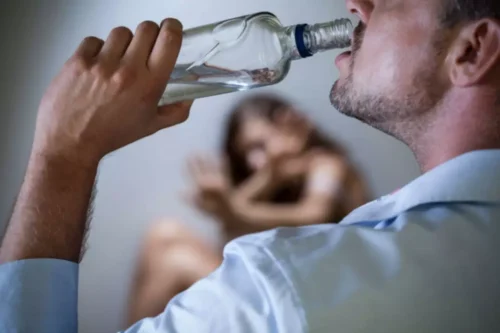
Consuming alcohol in moderation is unlikely to have a negative effect on your health. They can work closely with you to develop a strategy to help you stop drinking. If you’ve eaten, your stomach will be focused on digesting the food. Whether you’re spending time with friends or trying to unwind after a long day, many of us enjoy having a cocktail or cracking open a cold beer occasionally.

The 4 Stages Of Alcoholism For The Functioning Alcoholic: A Path To Addiction
- In terms of how these results might relate to day-to-day activities, driving is the first thing that comes to mind.
- The person may feel a false sense of control, believing they are still in command of their actions, even as alcohol starts to cloud their judgment.
- This is one of the more common ways that people who relapse on heroin or other opioids die.
- They will also feel more hangover than they would’ve been if they were tipsy.
- If you don’t drink often, be aware that alcohol will likely affect you more than someone who does drink regularly.
The body’s ability to regulate essential functions, like temperature and breathing, starts to falter, posing a significant threat to the individual’s health. Despite how severe their condition might be, the person may not fully comprehend the danger they are in due to their mental and physical impairment. Despite feeling in control, subtle impairments to judgment and reaction times begin at the tipsy stage. While the person may feel more at ease and sociable, their ability to make decisions or accurately assess their level of intoxication may be affected.
- The fact that driving after drinking is illegal speaks to its dangers — and gives us a good idea of just how much alcohol affects our functions.
- If you’re visibly drunk and disruptive in public, you could face public intoxication charges.
- With 1-3 drinks for women and 2-3 for men, individuals often feel more confident, talkative, and less inhibited.
- Our sincere passion is helping people recover so that they can live full, meaningful, and healthy lives.
- As a result, the lessons we learn from getting drunk for the first time are often hard lessons.
What Are the Symptoms of Alcohol Addiction?
Typically, it can take at least several hours for their BAC to reduce enough for it to be safe to drive. Ideally, a person should not drive after consuming alcohol until it is completely out of their system. It takes about 1 hour for the average adult to process one unit of alcohol, which is 10 milliliters (ml) or 8 grams. Hallucinogens, such as LSD, PCP, ketamine, mushrooms, and mescaline, all produce their effects by altering serotonin within the brain. While high on hallucinogens, users may experience an altered perception of time and the world around them.

Intoxication
It typically reaches your brain within 5 minutes, and you can begin feeling the effects within 10 minutes. Up to 20% of the alcohol you drink goes into your bloodstream through your stomach. The rest of it gets into your bloodstream via your small intestine.
During a blackout, you may still walk, talk, and interact with others, but you won’t remember any of it the next day. Blackouts are a sign of severe intoxication and indicate that you’ve consumed too much alcohol. Several factors influence how drunk you feel and how your body processes alcohol.
Tipsy alcoholism treatment drinkers minimize guilt in CAGE questions despite experiencing remorse later. The CAGE Assessment reveals this contradiction through targeted questioning about emotional responses to drinking. Honest answers indicate awareness of problematic drinking patterns beneath casual dismissals. Following these tips will help reduce the risks of accidents, injuries or other unintended consequences of intoxication. It’s important to be aware of these risks and take steps to drink responsibly. I am a passionate beer connoisseur with a deep appreciation for the art and science of brewing.

In your brain and nervous system
- Music playing in the background might enhance feelings of joy or excitement as individuals dance and mingle with one another.
- This is why, when drunk, people often stumble around or have trouble standing, and it’s also why drinking and driving is such a bad idea.
- In the morning, their hands may shake and they may experience frequent heartburn.
- Peeing a lot and not getting enough nonalcoholic fluids can lead to dehydration and make you even more drunk.
Any treatment center receiving calls from the site is a paid advertiser. Whether you’re making that call for yourself, or on behalf of somebody else, we will be able to provide all the help you need. Moderation is key to enjoying alcohol without suffering from its negative effects. In the UK, the legal limit for driving under the influence is 35 micrograms per 100ml of breath, which can be identified using a breathalyser. It helps to be familiar with the signs of being drunk so you know what to expect, when to stop it, and when to get help. Howl at the Moon can host awesome birthday parties, bachelor parties, bachelorette parties, holiday parties, corporate events and more.

Alcohol will impair our coordination and balance, making us more prone to accidents. For example, if you were to drive while intoxicated, your reaction time and ability to make quick decisions are slowed, significantly increasing the likelihood of car crashes. If you continue to drink, the effects will become more pronounced, leading to drunkenness and potentially more severe impairment. Of course, if one is in the phase of being actually ‘drunk,’ so many things can happen, whether planned, unplanned, intended, or unintended. Most cases of accidents and even crimes happen when one is intoxicated. The effects of dopamine when one is ‘drunk’ affect the efficacy of one making decisions for themselves in certain situations.
Alcohol Addiction
These symptoms are often a cause for concern as they can be quite painful, induce a relapse, and in some cases cause death. They often cause a decrease in inhibitions and an increase in risk-taking behaviors. This can include putting oneself in harm’s way, mixing substances, and engaging in risky sexual behavior.
They will also feel more hangover than they would’ve been if they were tipsy. Being tipsy involves experiencing euphoria, chattiness, laughing, and disinhibition. Scaling these what does it feel like to be tipsy risky BAC thresholds is not as difficult as some might think. They may feel slightly more relaxed but are still in control of their actions. Whether you are struggling with addiction, mental health or both, our expert team is here to guide you every step of the way.
